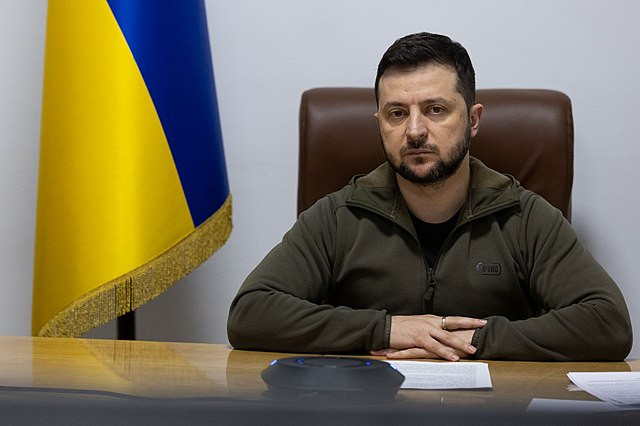Ukrainian forces launched a major offensive into Russia's Kursk region on Sunday, marking the latest escalation in a conflict that has defied expectations of resolution. The operation, conducted under freezing conditions favorable to armored advances, has reportedly inflicted significant losses on Russian and North Korean forces, according to Ukrainian President Volodymyr Zelenskyy.
Video footage from the region showed Ukrainian armored columns navigating snow-covered terrain toward villages near Bolshoe Soldatskoe and Pushkarne, with some vehicles advancing through sparsely populated settlements. Ukrainian officials confirmed the operation, which reportedly involved 42 combat clashes on Sunday alone, with 12 continuing into the night.
"In battles yesterday and today near just one village, Makhnovka, in Kursk region, the Russian army lost up to a battalion of North Korean infantry soldiers and Russian paratroops," Zelenskyy said in his nightly address. He called the losses "significant" but provided no further specifics. A battalion typically consists of several hundred troops.
Russia, for its part, has remained tight-lipped about the latest developments. However, Moscow has previously acknowledged the deployment of North Korean troops to the Kursk region, an arrangement facilitated by growing military ties between Russia and Pyongyang.
The surprise operation follows Ukraine's initial incursion into Kursk in August 2024, when Ukrainian forces captured swathes of Russian territory in an unprecedented move since World War II. While Moscow has since recaptured 40% of that territory, it has struggled to fully dislodge Ukrainian troops.
Andriy Yermak, head of Zelenskyy's office, lauded the renewed offensive. "Kursk region, good news. Russia is getting what it deserves," he wrote on Telegram.
The operation has triggered speculation among Russian military bloggers that Ukraine may be targeting strategic assets, such as the Kursk nuclear power plant in Kurchatov. Kyiv has dismissed such claims, emphasizing that the offensive is focused on disrupting Russian operations and securing leverage for potential peace talks.
With U.S. President-elect Donald Trump set to take office on January 20, the timing of the offensive carries additional geopolitical significance. Zelenskyy has hinted that Ukrainian-controlled territory in Kursk could play a role in any future peace negotiations. However, Moscow has shown little willingness to compromise, maintaining its territorial demands, including areas it annexed in 2022 but does not fully control.
Russia's reliance on North Korean troops has added complexity to the conflict. Zelenskyy reported that North Korean soldiers, operating in frontline villages southeast of Sudzha, have suffered over 3,000 casualties since their deployment.
Despite the successes in Kursk, Ukrainian forces face mounting challenges elsewhere. Russian troops have made gains in the Donetsk region, capturing outlying villages and advancing toward the city of Pokrovsk. Meanwhile, Ukrainian defenders recently abandoned a stronghold in Kurakhove, leaving the area vulnerable to further Russian advances.
Criticism has emerged over Ukraine's strategy of counter-invasion into Russian territory at a time when its forces are stretched thin. However, Colonel General Oleksandr Syrskyi, Ukraine's commander-in-chief, defended the operation. Syrskyi said the offensive had compelled Russia to divert significant forces to its own territory, weakening its capabilities elsewhere," he said.




